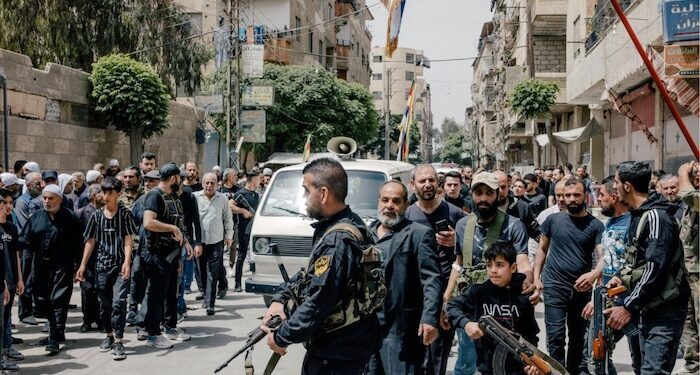At least 30 people have been killed and over 100 others injured in intense clashes between Bedouin Sunni tribes and fighters from the Druze religious minority in southern Syria, marking one of the deadliest sectarian flare-ups since the fall of the Assad regime in December.
The violence erupted in the city of Sweida, a predominantly Druze stronghold, prompting urgent intervention by Syrian security forces deployed by the newly formed Islamic-led government. The Interior Ministry confirmed the death toll at 30, while the UK-based Syrian Observatory for Human Rights reported 37 deaths, citing local medical sources and activists on the ground.
The unrest follows months of growing instability since the collapse of President Bashar al-Assad’s government, which ended the Assad family’s 54-year rule. The regime was toppled in late 2024 after Sunni Islamist rebels led by Hayat Tahrir al-Sham (HTS) stormed Damascus. Since then, the transitional government has struggled to assert control over fractured regions, long plagued by ethnic and sectarian tensions.
Governor of Sweida, Mustapha al-Bakur, issued a televised appeal on Monday, urging “self-restraint” and calling on residents to support “national reform efforts.” Religious leaders from the Druze community also appealed for calm, amid rising fears of further bloodshed.
Fighting between the Druze and government forces is not new. Clashes in April and May had already left dozens dead. The Druze, an esoteric offshoot of Shia Islam with communities across Lebanon, Israel, and Jordan, had largely remained loyal to the Assad regime during Syria’s 13-year civil war, hoping for protection. With Assad gone, the Druze now find themselves vulnerable and increasingly alienated under the new Sunni-majority government.
Members of the Druze community told the BBC earlier this month that they fear not only physical attacks but also the lack of political protection and representation under the new administration. Similar anxieties are being felt across Syria’s mosaic of minority groups. The Alawite community, to which Assad belonged, has suffered hundreds of deaths in recent months, and Christian worshippers were recently targeted in an attack on a church in Damascus.
The spiraling unrest comes at a sensitive time for international diplomacy on Syria. The United States recently removed HTS from its list of foreign terrorist organizations, signaling a tentative warming of relations. In a historic move, UK Foreign Secretary David Lammy visited Syria earlier this month — the first by a British official since the uprising began in 2011.











